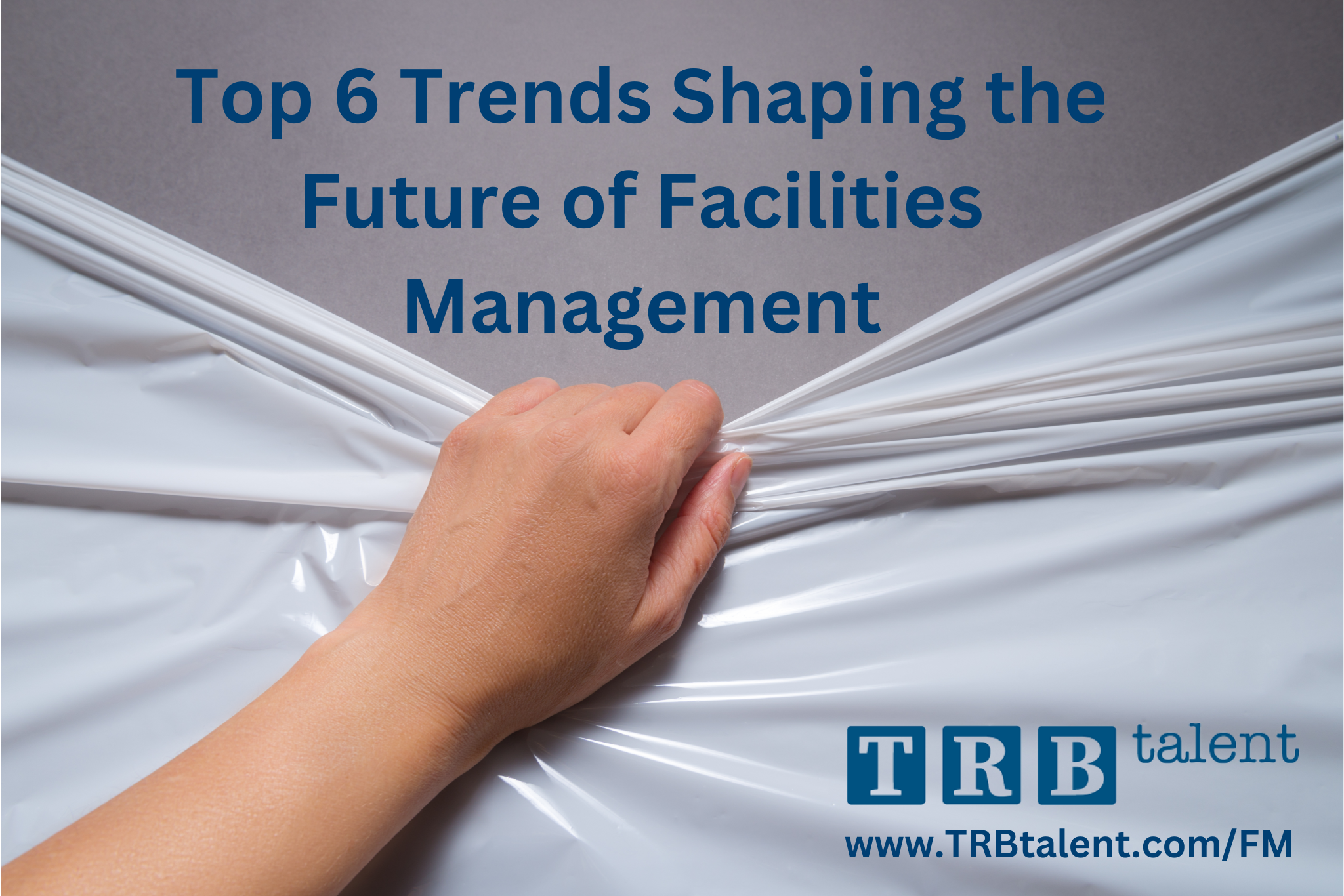Top 6 Trends Shaping the Future of Facilities Management
Facilities management is evolving rapidly, driven by technological advancements, sustainability goals, and changing work environments. As organisations strive to optimise operational efficiency and provide better workplace experiences, keeping up with the latest trends in FM is crucial. In this blog, we explore the top six trends that are shaping the future
of facilities management.
1. Smart Buildings and IoT Integration
The rise of smart buildings powered by the Internet of Things (IoT) is transforming how facilities are managed. IoT devices such as sensors, cameras, and automation tools allow facility managers to monitor and control various aspects of a building, from HVAC systems and lighting to security and energy consumption.
Key Benefits:
- Energy Efficiency: Real-time data enables automated adjustments to lighting and temperature, significantly reducing energy costs.
- Predictive Maintenance: Sensors can detect issues in equipment before they become critical, minimising downtime and repair costs.
- Enhanced User Experience: Smart environments can adapt to occupants’ preferences, providing better comfort and productivity.
2. Sustainability and Green Building Practices
Sustainability is no longer a buzzword but a core component of facilities management. There’s an increasing emphasis on reducing carbon footprints, minimising waste, and improving energy efficiency. Green building certifications like BREEAM (Building Research Establishment Environmental Assessment Method) are gaining popularity.
Key Benefits:
- Cost Savings: Sustainable facilities often lead to reduced utility bills and operational expenses over time.
- Compliance: Regulatory pressures and corporate responsibility initiatives are pushing organisations to adopt green practices.
- Employee Well-being: Healthier, eco-friendly environments improve air quality, reduce pollutants, and foster a better workplace atmosphere.
3. Data-Driven Decision Making
In the age of big data, facility managers are increasingly relying on data analytics to make informed decisions. Data from various building systems can be analysed to track trends, identify inefficiencies, and optimise building performance.
Key Benefits:
- Operational Efficiency: Analysing historical and real-time data helps managers make proactive adjustments to systems and processes.
- Cost Management: Data-driven insights enable better budgeting and financial forecasting for repairs, upgrades, and energy use.
Customisation: Facility managers can use data to tailor services and configurations based on occupancy rates, usage patterns, and employee preferences.
4. Workplace Flexibility and Hybrid Models
The pandemic has fundamentally changed how workplaces function. Statistics from the ONS show that in 2022, a quarter (25%) of UK employees worked from home at least some of the time. With this shift to remote and hybrid work models, facilities management now involves creating flexible, adaptive environments that accommodate different work styles and spatial needs.
Key Trends:
- Hot Desking and Activity-Based Workspaces: Companies are moving away from traditional office setups toward flexible workstations.
- Space Optimisation: Data on office occupancy is being used to better allocate resources and spaces, ensuring no area is wasted.
Well-being and Safety: Facilities are incorporating touchless technology, improved air filtration, and flexible layouts to promote health and safety.
5. Workplace Experience (WX)
The workplace experience is becoming a priority for facility managers, with a shift from simply maintaining buildings to enhancing the overall employee experience. WX platforms, which integrate various tools and services like room booking, maintenance requests, and wellness features, are playing a significant role.
Key Benefits:
- Increased Employee Engagement: Seamless technology that allows employees to personalise their workspace and access amenities can improve job satisfaction.
- Centralised Management: WX platforms enable facility managers to oversee multiple aspects of the workplace from one dashboard, streamlining operations.
- Higher Productivity: Enhanced user experience tools allow for easier collaboration, better space utilisation, and improved workflow.
6. Health, Safety, and Wellness Integration
Health and wellness have become key focus areas in facilities management, particularly post-COVID-19. Facility managers are prioritising initiatives that ensure the well-being of occupants, ranging from air quality improvements to mental health considerations.
Key Trends:
- Enhanced Air Filtration Systems: Improved HVAC systems that reduce airborne contaminants are becoming essential.
- Touchless Technologies: Minimising surface contact through automatic doors, sensor-based lighting, and voice-activated controls is gaining traction.
Mental Health Initiatives: Incorporating elements such as quiet rooms, natural light, and access to green spaces supports mental well-being and productivity.
Conclusion
The future of facilities management is bright, with technology and sustainability driving innovation. By embracing these trends—smart buildings, data-driven decision-making, and a focus on health and wellness—facility managers can create more efficient, sustainable, and adaptive environments. As these trends evolve, they will continue to shape the workplace of tomorrow, ensuring that facilities management remains at the forefront of organisational success.
Staying ahead of these trends will allow facility managers to not only improve building operations but also create workplaces that enhance employee well-being and productivity.
About TRBtalent FM
TRBtalent are specialist recruiters with hands-on experience within the FM sector. We recruit technical and non-technical positions at all levels within the sector. We support FM companies, In-house teams and Subcontractors to find the skilled talent they are looking for. With our dedicated proactive search and selection on all assignments we find top performers across the UK.
All placements come with our 12 Month Rebate and Replacement Policy as standard on all roles filled. To find out more call 01622 934 954, fill out our online form, or contact Jeremy Barwick directly at [email protected]



